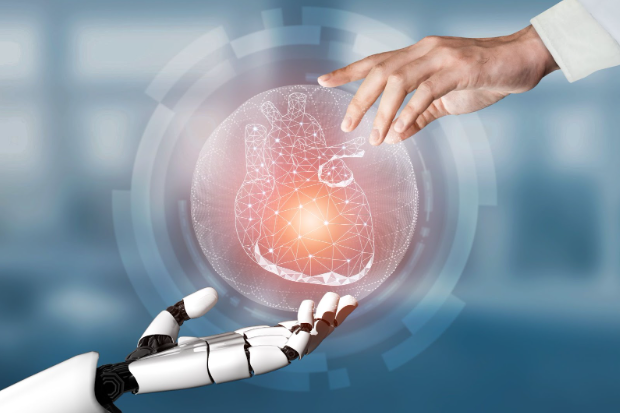Future of Healthcare Jobs with AI
August 02, 2023
Artificial intelligence (AI) has been a transformative force across various industries, but how disruptive is it for healthcare jobs? According to a recent report by McKinsey & Co., while AI could automate up to 30 percent of work hours in the U.S. by 2030, healthcare occupations are on a more stable trajectory. The emergence of generative AI technologies such as ChatGPT further reinforces this resilience.
McKinsey & Co. categorizes health aides, technicians, and wellness workers as not only resilient, but growing job sectors in the face of AI automation. These professionals are expected to see an estimated 4 percent increase in the automation of their work by 2030, bringing the total automation to 20 percent.
In parallel, health professionals can anticipate a 4 percent increase in AI automation in their roles by 2030, reaching up to 18 percent, as reported on July 27.
What sets healthcare employment apart is the simultaneous growth in demand projected for both job categories, which is expected to counterbalance any adverse labor market effects resulting from AI automation. McKinsey’s study suggests that by 2030, there will be a 30 percent increase in demand for healthcare workers, making healthcare jobs among the most promising in future job security. Notably, nurses and home healthcare aides are expected to be the two fastest-growing occupations by the decade’s end.
This data indicates that the healthcare sector is well-poised to adapt to the changing landscape brought about by AI, with a net positive effect on employment opportunities.
Sources:
https://www.mckinsey.com/mgi/our-research/generative-ai-and-the-future-of-work-in-america
Recent News

November 07, 2023
UT Arlington’s Smart Hospital: Innovations and Advancements
The University of Texas at Arlington (UT Arlington) innovative hospital has […]
Read More
October 22, 2023
Healthcare’s 2023 Dilemma: Staffing Gaps
The healthcare sector in the US is grappling with a significant […]
Read More
